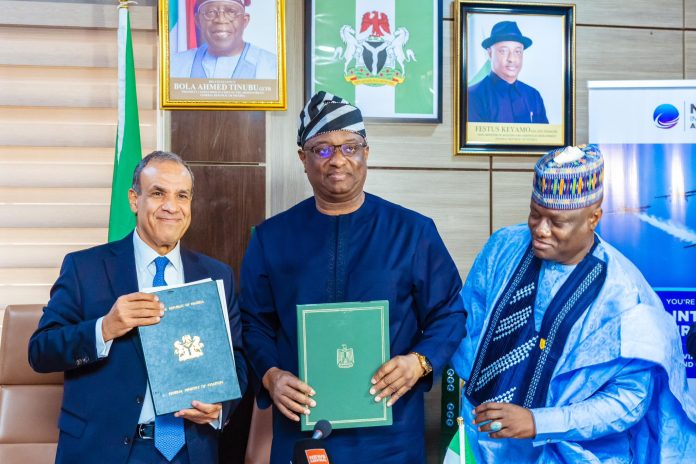Nigeria and Egypt have strengthened their aviation ties with the signing of a Memorandum of Understanding (MoU) and an Enhanced Bilateral Air Services Agreement (BASA), aimed at boosting air connectivity, trade, and technical cooperation between both countries.
The strategic agreements were formalised on Monday in Abuja by Nigeria’s Minister of Aviation and Aerospace Development, Mr. Festus Keyamo, during the visit of Egypt’s Minister of Foreign Affairs, Dr. Badr Abdellatty.
Originally initiated during the 2024 International Civil Aviation Negotiations (ICAN) conference in Kuala Lumpur, Malaysia, the agreements mark a significant step in aligning bilateral air services with the new African Civil Aviation Commission (AFCAC) BASA template.
Keyamo described the move as a “strategic breakthrough” that underscores both nations’ mutual commitment to improving connectivity, facilitating technical exchange, and unlocking investment opportunities across their aviation sectors.
“This agreement is not only a fulfilment of engagements started at ICAN 2024, but a bold step toward enhancing air connectivity, boosting tourism, promoting trade, and enabling knowledge transfer in aviation management and infrastructure,” Keyamo said.
The enhanced BASA provides for expanded route access and greater operational flexibility for designated airlines, while the MoU covers technical collaboration, capacity building, and infrastructure development.
In his remarks, Dr. Abdellatty expressed Egypt’s keen interest in building a lasting and mutually beneficial partnership with Nigeria. He commended Keyamo’s proactive leadership in modernising Nigeria’s aviation industry and affirmed Egypt’s view of Nigeria as a strategic continental partner.
Both ministers reiterated their governments’ commitment to implementing the agreements in a spirit of mutual progress and cooperation.
The ceremony was attended by senior officials from Nigeria’s Ministry of Aviation and Aerospace Development, including Permanent Secretary Dr. Ibrahim Kana, and representatives from Egypt’s diplomatic mission.
This development forms part of Nigeria’s broader efforts to reposition its aviation sector through international collaboration, regulatory reforms, and private sector participation.













